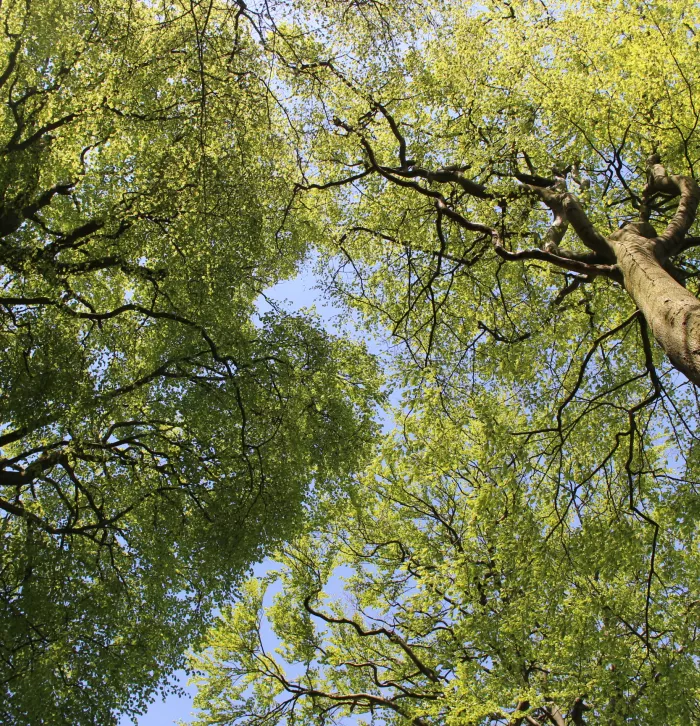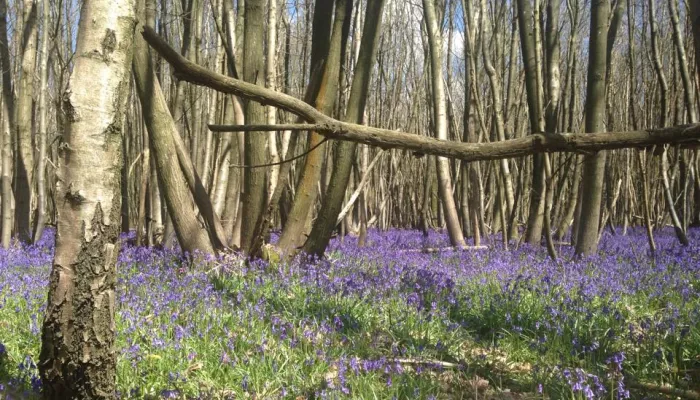Matt Huggins explores why our woodlands are an important part of our landscape, looking at how they give back to nature and to us. As our woodlands are under threat, it's more important than ever to preserve what's left and fight to keep them alive. Will you join us in saving our woodlands?
For thousands of years, the world's woodlands have been vital for the survival and development of the human race, into the species and worldwide society that we recognise in the modern day and age. Our very earliest ancestors would have seen the woods as an abundant and reliable source of food and nutrition, foraging beneath the boughs to feed throughout the seasons.
Not only this, but they would have used the wood itself to build shelters and create the very earliest of homes and humble beginnings of settlements, that would one day grow into something far more, as well as helping to fuel our fires across the intervening centuries. Even in more recent history, woodlands have provided employment opportunities for millions through building works, and even today the logging industry continues (which is okay, so long as it’s done sustainably – but that’s a whole other subject!). However, it is fair to say that we have come a long way since the younger days of humanity and the woodlands of the world, for the most part, no longer play such an immediate and obviously vital role in our daily lives as they once did. These days, our ancient woodlands cover only 2.5% of the UK, often with nonnative conifers taking their place. Many of our most iconic trees, including oak and maple, are now under threat, with agriculture, changes in weather patterns and inappropriate development being among the main contributors.
So, exactly why are woodlands still important?
Well, firstly and arguably most importantly, it’s not just about us! The woods of the world are a key habitat for more species than we could possibly imagine and play a vital role in the planet’s natural biodiversity. From mammals to birds, amphibians to reptiles and insects to fish, all manner of creatures have found a home beneath the trees, amongst the roots and within the bark itself, many of which are currently endangered. And that’s all without broadening our scope just a little wider. Even if we were to ignore the obvious abundance of tree species we see growing, we would notice that their component parts provide homes for countless species of fantastic fungi, lichens and mosses. Not only do they serve everything around them in life, but after all their long years are spent and they finally fall to the ground below, they return to the earth where they continue to nourish the thriving woodland around them.
Secondly, and directly linked to the previous point, although perhaps on a larger scale, the planet’s trees are intrinsically linked to Earth’s ecosystems, both locally and globally. Not only crucial to wildlife, but the natural processes that woodlands perform within these ecosystems provide all too often overlooked benefits to mankind. Particularly vital in today’s climate, woodlands are essential to the world’s carbon cycle, absorbing excess carbon from our atmosphere and storing it away, whilst purifying the very air we breathe to boot. On top of this (as if this weren’t enough) they purify the water system and significantly reduce the risks of flooding and even landslides. And all we have to do to receive all of these fantastic benefits is take just a little bit of care of our trees – pretty cool right?
Thirdly, they are wonderful, special, precious spaces, which deserve our love and admiration. Is there anything more whimsical than a moss covered woodland? The fluttering leaves and whispering breeze above, the rare glimpse of an elusive deer, the hidden glades of bluebells and wild garlic in springtime. Stepping into the peace that lies only amongst the shelter of trees can often feel like stepping back through an ancient window into our long forgotten past. In the fast paced, crowded, loud nature of modern life, these places are becoming increasingly valuable. As a society, we become more and more aware of how our mental wellbeing has an effect not only on our physical health, but on our entire realities and in 2022, a study found that listening to birdsong significantly reduced anxiety, and any exposure to nature led to notable improvements in emotion. The quiet solitude one might find amongst woodland can provide relief for those in need of a little time and space. Time to think and space to breathe; woodlands can become a place to simply just be.
So there we are, woodlands; necessary, beautiful and magical. They have been around for millenniums, and we need to ensure that through our care they remain for millenniums more, rather than disappearing before our own eyes due to our neglect. Hopefully, as a society and a species, we can collectively appreciate their true value today, rather than when it is too late tomorrow. The woodlands and the trees they contain are vital to all life, so let’s all do our best to respect and care for each and every one. Let us be the voice for these strong and gentle guardians watching silently over our lands.


